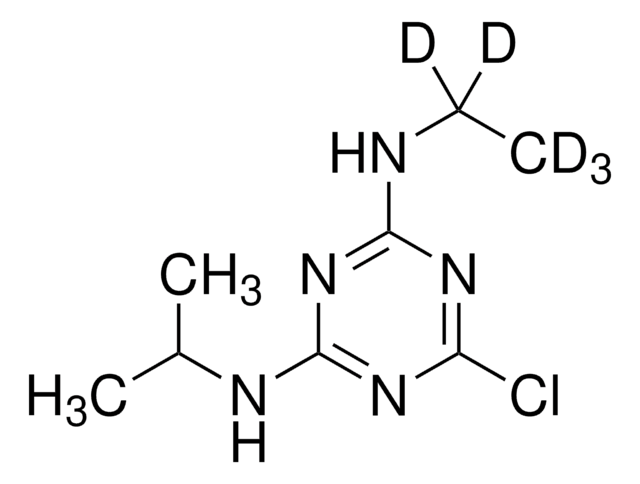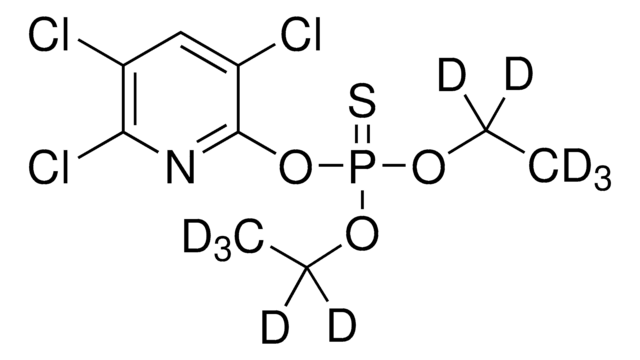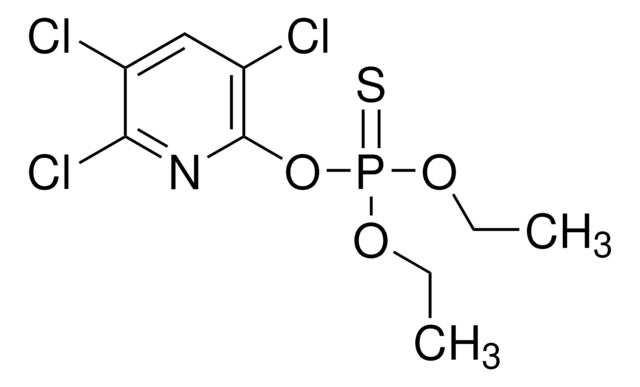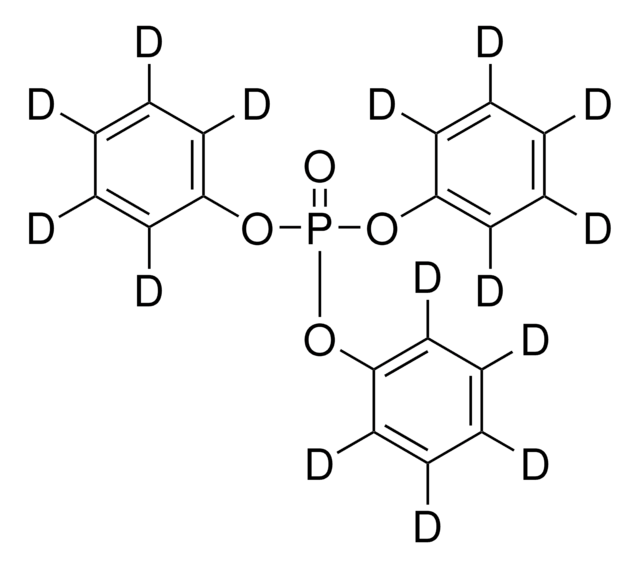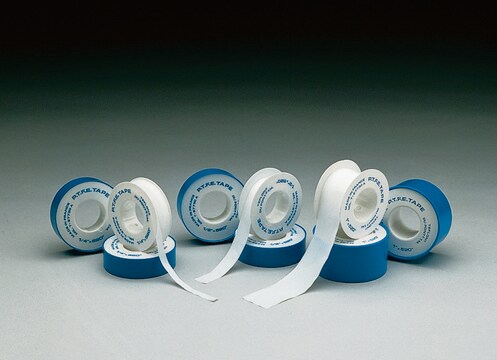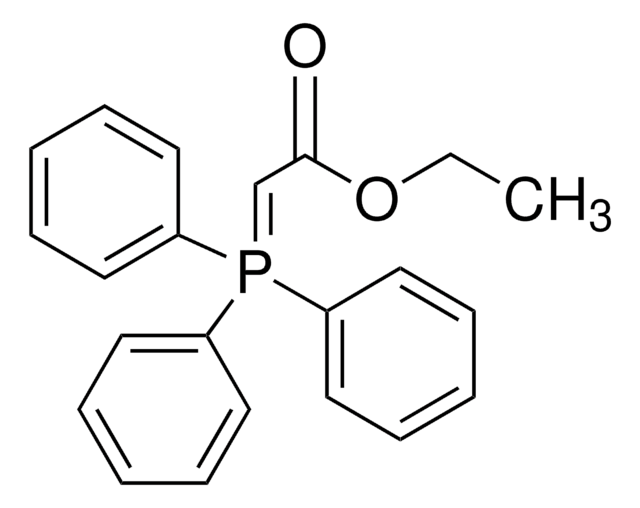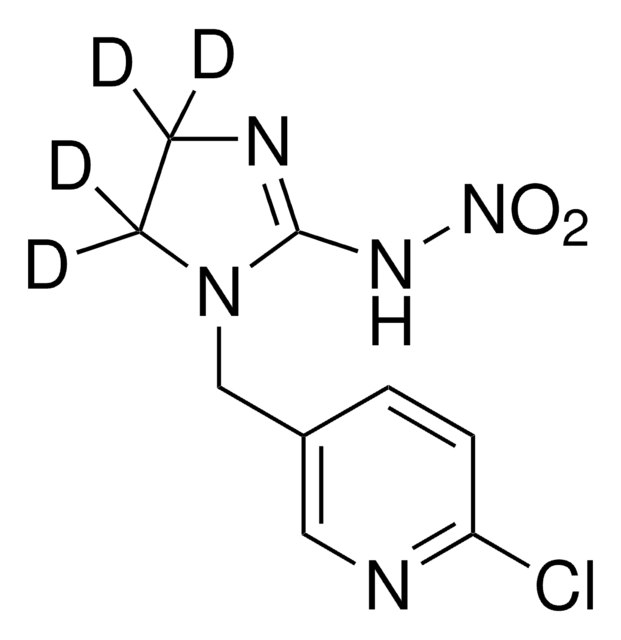About This Item
Recommended Products
isotopic purity
≥99 atom % D
Quality Level
Assay
≥98% (CP)
refractive index
n20/D 1.4978 (lit.)
bp
83-84 °C/0.002 mmHg (lit.)
density
1.152 g/mL at 25 °C
application(s)
agriculture
environmental
mass shift
M+10
storage temp.
2-8°C
SMILES string
[2H]C([2H])([2H])C([2H])([2H])OP(=S)(Oc1cc(C)nc(n1)C(C)C)OC([2H])([2H])C([2H])([2H])[2H]
InChI
1S/C12H21N2O3PS/c1-6-15-18(19,16-7-2)17-11-8-10(5)13-12(14-11)9(3)4/h8-9H,6-7H2,1-5H3/i1D3,2D3,6D2,7D2
InChI key
FHIVAFMUCKRCQO-HXOHQZFQSA-N
Looking for similar products? Visit Product Comparison Guide
Application
- In analytical methods for routine monitoring of residual pesticide.
- As an internal standard in GC–MS quantification of pesticides in food.
Packaging
Signal Word
Danger
Hazard Statements
Precautionary Statements
Hazard Classifications
Acute Tox. 3 Oral - Aquatic Acute 1 - Aquatic Chronic 1
Storage Class Code
6.1C - Combustible acute toxic Cat.3 / toxic compounds or compounds which causing chronic effects
WGK
WGK 3
Flash Point(F)
235.0 °F - closed cup
Flash Point(C)
112.8 °C - closed cup
Choose from one of the most recent versions:
Already Own This Product?
Find documentation for the products that you have recently purchased in the Document Library.
Customers Also Viewed
Our team of scientists has experience in all areas of research including Life Science, Material Science, Chemical Synthesis, Chromatography, Analytical and many others.
Contact Technical Service